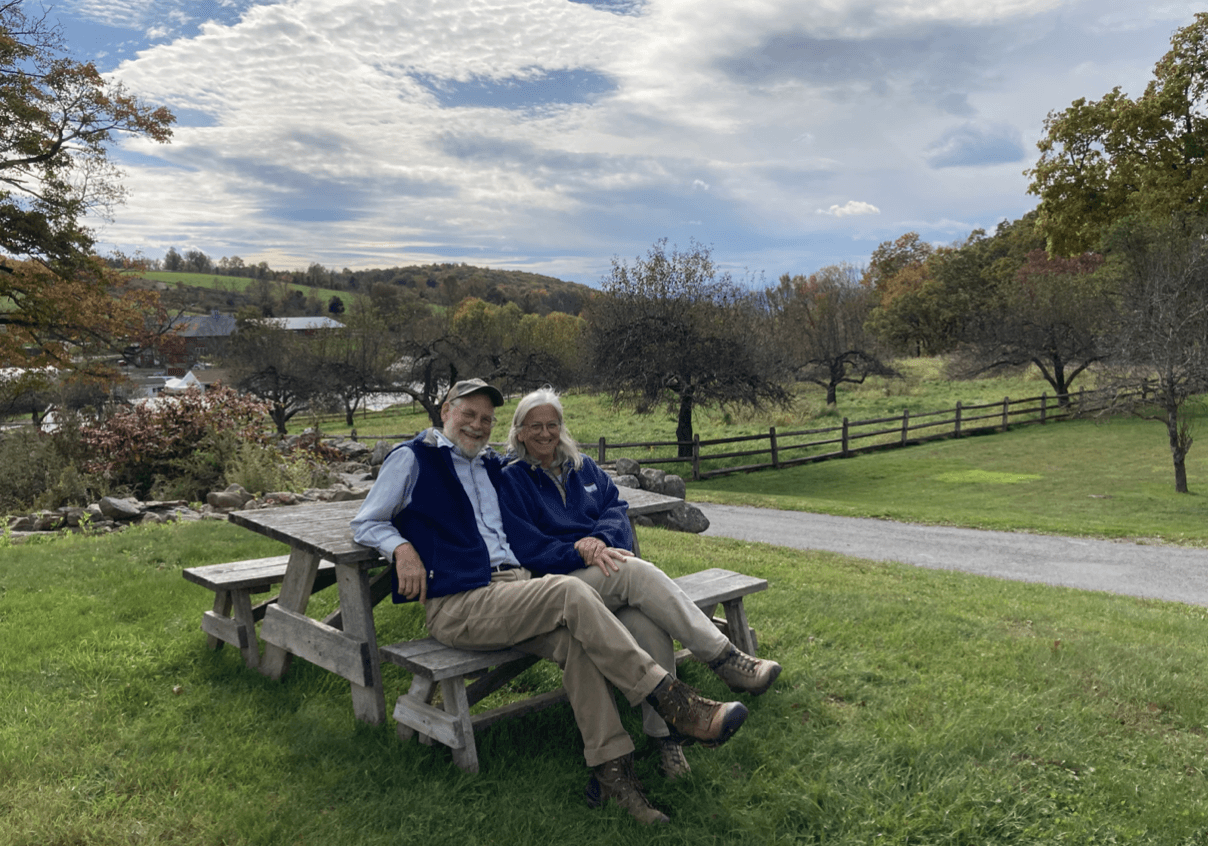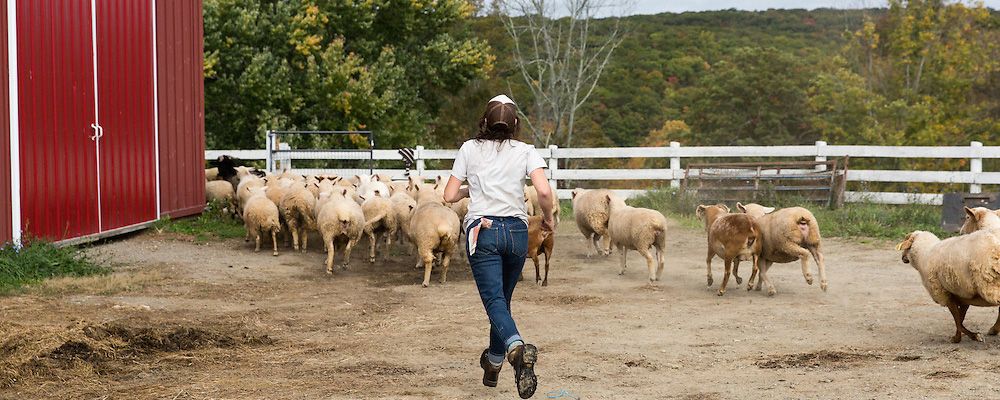From Where I Stand… A Note from the Director of Agriculture
by Laura Lengnick, Director of Agriculture
It’s hard to believe that it’s been almost six months since I stepped into my new role as the Director of Agriculture at Glynwood. Arriving just as the season began to turn from summer to fall, me and my partner, Weogo Reed, settled into our new home on the farm and got started exploring the land, people and communities of the Hudson Highlands and beyond.
Some highlights from those first few months before winter set in: attending CRAFT tours and workshops on nearby farms, picking organic apples at Fishkill Farms, spending a glorious fall afternoon among the blooms of Stonecrop Gardens, swimming in Perkins Lake, planting garlic in the upper field with an enthusiastic volunteer crew, weekly visits to Glynwood’s farm store and the Cold Spring farmers market, and hosting the Philipstown Garden Club at the Perkins House for a delightful afternoon tea and a discussion of soil health.
Over the winter, I’ve been busy speaking about regenerative food and farming at regional and national events, leading climate risk management workshops for farmers and farm advisors, and doing collaborative project planning with Glynwood partners in the Hudson Valley and beyond.
I’ve spent hours walking on the farm and in the surrounding forests over the last six month while pondering how this land and the people who care for it come together as a whole to support Glynwood’s mission. This diverse working landscape is home to a certified Animal-Welfare Approved, pasture-based livestock farm, a certified organic vegetable farm, an aging orchard, well-kept lawns and ornamental gardens connected by a patchwork of field edges, thickets, woodlands, wetlands, rushing mountain streams and placid lakes.
This land produces not only a year-around supply of nutrient-dense whole foods for the local community, but also healthy soils, clean water and air, and well-educated farmers. It is home to abundant wildlife and beautiful landscapes that invite recreation and quiet reflection. As an additional benefit, Glynwood’s land managers also work to slow and reverse climate change by using practices that avoid or reduce the use of fossil fuels and increase the amount of carbon taken out of the atmosphere that is stored in plants and soils.
As the impacts of climate change grow more damaging, being able to see this landscape as a whole, while keeping all the parts in mind, is an increasingly important management skill proven to enhance the resilience of businesses, especially nature-based businesses like farming. The good news is that Hudson Valley farmers, like farmers everywhere, can take advantage of a type of whole landscape management — Holistic Management — that can help land managers reduce the risks associated with disturbances and shocks of all kinds.
Holistic Management is a way of making decisions about how to care for land that acknowledges this fundamental truth about life on our planet: nature functions as a whole. Using a special kind of goal-setting, along with other practices, holistic land managers take the time to observe how their landscape functions as a whole, even as they focus day-to-day on managing different parts. This kind of “managing with the whole in mind” produces a multitude of environmental, economic and social benefits that help to sustain the well-being of the land, and the people who depend on it, over the long term. Holistic Management invites us to remember that our own success depends on making decisions that promote healthy land, people and community — the cornerstones of regenerative food and farming.
It is easy to see the value of keeping the whole in mind when it comes to the sustainable management of water resources. As Glynwood’s Field Operator Matthew Ball explains in Farm Irrigation and Water Management at Glynwood, water serves as a natural landscape connector as it flows into, through and out of a farm. Although Matthew is focused day-to-day on making sure the crops and livestock have the water they need to thrive, he takes the time to think about how water enters and flows through the landscape, where it is stored and how it exits the property. Only then does he consider his options for managing Glynwood’s water in a way that meets the needs of Glynwood’s farms and the needs of the landscape as a whole.
Glynwood’s land management team is hard at work this year adding Holistic Management practices to their toolbox. For example, the team is currently working to create Glynwood’s first ever holistic land management goal. This three-part goal describes the quality of life desired by team members, the behaviors and processes that are needed to support this quality of life, and a vision of the land, people and local community that are needed to support this quality of life far into the future. Once we have completed our holistic goal, the team will begin using the goal to identify best management options that help the land and the people who care for it flourish no matter the weather.

Glynwood’s Director of Agriculture, Laura Lengnick, and her partner Weogo Reed enjoy a beautiful fall day at Glynwood
Back to News & Notes

